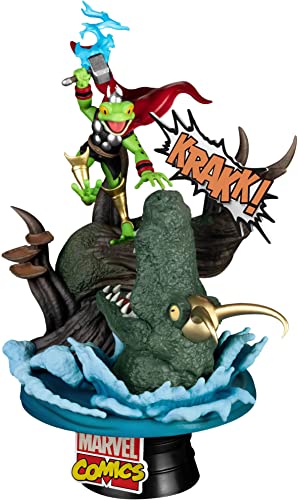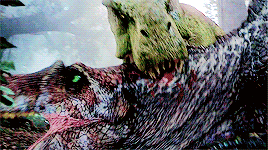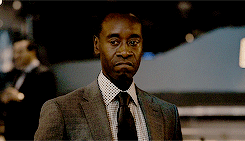For the life of me, I can't comprehend how you can consider the PT story "more coherent" and "more thought-out" than the ST. Both trilogies share a central premise: that individuals, and entire systems of government, can be corrupted and fall into the hands of evil. The PT was more about loss of innocence. The ST is more about dealing with past sins. So, the question becomes which set of movies executed better?
Hmmm, I'd say that is debatable, but yes, I agree that is one of SW's central themes.
And as far as the prequels dealing more with the loss of innocence and the sequels with dealing with sins of the past, I also agree those are important themes in each trilogy.
The PT spent two-and-a-half movies showing us that Anakin was a good and kind person who loved his mother, his wife, and his mentor. Sure, he had some anger and impulsiveness issues, but nothing too unusual for a teenager/young adult. Then, in the last *half* of the *third* film, he turns evil because someone assures him that by embracing the dark side he can learn to save his wife's life (*if* she were to die during childbirth, as foreseen in his dream). WHAT!?
Here I have to disagree...
The prequels show us a conflicted and insecure Anakin from the get-go, and then chart his path to darkness from the second movie onward.
In TPM Anakin is a
slave, a disposable piece of property that can be sold and gambled with. His innocence is perfectly portrayed (albeit imperfectly acted) in a simple scene where seeing beauty is like seeing angels. His resentment is also perfectly shown in the same scene when he rebukes Padmé and defiantly tells her that he is a
person and that he has a
name. I know people can't get over the acting, and that's fine, but there is such depth to that simple exchange. It tells you everything about this lonely, sad, yet hopeful child (he listens to the pilots talk and dreams of getting out). This child, who has a big heart is taken away from his mother by a Jedi who flatly states that his job isn't saving slaves... which sets up the hubris of the Jedi order by the way, but that's another story.
In AOTC we meet Anakin as a teenager, arguably the most emotional and unstable stage in a human's development. He is shown as a young man governed by his emotions, still insecure (remember how nervous he is on his way to meeting Padmé?), and -in typical teenager fashion- at odds with "grown-ups" and authority. But with a decisive difference: he is becoming the most powerful Jedi, and he knows this. Add to that a forbidden love (which further puts his emotional nature at odds with the Jedi order's aloof and distanced nature -another great example of this is shown in ROTS, when Anakin's instinct is to help the troopers, whereas Obi-Wan is casually dismissive of their deaths) and the catastrophic death of his mother, and you have a recipe for disaster, given Anakin's fragile control over his emotions. His massacre of the Tusken village (nothing too unusual for an impulsive teenager?) is a release for him, all his frustrations, all his anger and his resentment are given free rein. But there's still conflict in him, and he's smart enough to understand that things are wrong: "I'm a jedi, I know I'm better than this". In that same scene, we get a clear glimpse of his future path... from "I'm good at fixing things" to "I should be all powerful"... So again, but with much higher stakes, we see Anakin's conflicting nature and path to darkness: from the selfless good (disobeying orders to save Obi-Wan) to angry resentment.
Finally, in ROTS, the ante is raised once more: now Anakin fears for his wife, and he already is the most powerful Jedi. He has been hardened by his experiences and is manipulated by a new father figure, one who seems to understand him and also seems to share his misgivings about some of the Jedi Order's attitudes. The loving, good hearted man is still there ("Master, I've disappointed you"), but his obsessions are stronger, as are his fears (his nightmares and visions). The aforementioned scene at the beginning of the movie shows us a leader selfless enough to risk his life for his soldiers, then we have him struggling with his instincts when goaded by Palpatine to execute Dooku. And that's just in the first third of the movie. Given all that, is it surprising that such a person would ultimately sacrifice everything, even his soul as it were, to save the one thing that anchors him? And even so, after the deed is done, he still recognizes the wrong he has done, but surrenders to the darkness in him and it takes him completely, finally destroying that which he sought to save: Padmé.
So I must disagree and reject your assertion that the story of Anakin's turn to the dark side and downfall are precariously told in the last third of the third movie. The
story is there, the
progression is there. You might not like the dialogue or the acting, but the
story is there and
it makes sense.
Do you seriously believe that was well-thought-out? Was it also well-thought-out and coherent to introduce Dooku as a fallen Jedi (making Anakin merely the latest), but never actually explain his background? The same for the reference to Sifo-Dyas building the clone army. That was a rather key part of the story, right? Yet it had to be explained in the cartoon series, FFS! I've seen people here who defend the prequels complain about Snoke not getting a backstory (which he still might in TROS), but apparently be perfectly fine with Dooku, Grievous, and Sifo-Dyas (thereby the genesis of the clones) getting no background exposition whatsoever.

Yes, I do seriously believe that it was well thought-out.
Dooku serves the purpose of Palpatine's constant search for a new apprentice perfectly. Palpatine is always on the look-out for powerful Force-wielders to further his plans. As far back as the OT, we see that Palpatine wants a new apprentice in Luke. Not as clear cut as the "rule of two", but it's clear. AOTC was too soon to make Anakin an apprentice of the Sith Lord, but Palpatine wouldn't be just sitting still. Also, Dooku is a very interesting character, as his turn to the Dark Side is motivated by his lack of trust in the Senate/Republic and the Jedi Order. All of that is explained in his conversation with the captive Obi-Wan, so we do understand the key elements of his background, specifically why he's doing this. So, Dooku is not another "fallen" Jedi as you argue, but a Master Jedi disenchanted with the Status Quo. In the end, he was merely a pawn in Palpatine's plans, just like the Trade Federation and Grievous.
As for Sifo-Dyas, yes, I do agree that was a bit obscure and had me scratching my head, but, again, it serves the purpose of showing Palpatine's manipulations and the depth of his plan to bring down the Republic. But yes, not the most fleshed out part of the story. However... is it really a key part of the story as you say? Maybe not... one could have easily said that the Kaminoans made Clone Armies for a living and the Republic went shopping when they needed one, but by making it a subplot of Palpatine's via another (unknown) apprentice we get to see the deviousness of Palpatine's plan, and how long term it is. Makes you understand just how clever he is, which in turn lends credence to his being able to manipulate Anakin.
And then there is Grievous... another head-scratcher for me, and I have no real rebuttal here. An interesting idea in trans-media thinking, I suppose, but it did nothing for me. Unfortunately, Disney seems to have picked up on that trans-media thing to explain characters and motivations...
The ST has done more, in just *two* movies, with the emotional and psychological layers behind the corruption of Ben Solo than the PT did in all three movies with Anakin. In the same damned movie, Anakin went from acknowledging his reverence for Obi-Wan as a father figure to screaming "I HATE YOU!!" at him (after attempting to murder him for no clear reason). The transition was flimsily-established, and even absurd in its execution. In stark contrast, Kylo Ren stabs his own father in what was clearly a tortured attempt to fully embrace the darkness that had been corrupting his soul - by doing the most difficult thing required. Without even knowing Ben Solo, the context in the story combined with actual good acting to produce an impactful pivot point that actually resonated. The pivot point for Anakin (at the end with Obi-Wan) is nothing but fodder for ridicule.
Having his father reach for Kylo's face after that betrayal told us all we needed to know about how tragic of a loss Ben Solo was. Then TLJ compounded that by exploring the complexity of Kylo's conflict. Just two movies in, Kylo is much more layered and fleshed-out than Anakin was after all three "films." The quality of acting goes a long way, as does quality dialogue, in effectively conveying what is happening to a character. The difference in quality between what Adam Driver has delivered and what Hayden Christensen did is night and day. As is what each director gave the two actors to work with.
Again, I have to disagree here.
I laid out Anakin's character-arc throughout the three prequels. The fact that the acting and dialogue don't resonate with you (and a lot of other people

) doesn't mean they are not there.
On the other hand, there is no character-arc for Kylo. I'm not saying his character is badly written (and I'm a big fan of his acting), but he starts off as the bad guy, throws a couple of tantrums and in a very emotional, very well filmed scene, kills his father. That's it. There is no descent into the Dark Side. What is the character-arc?
Then in TLJ we do get some background, but we still never understand why things are going wrong. All we know is that Luke thinks "the boy is trouble" and contemplates killing him. His nephew! Luke Skywalker. The same man who believed so much in the good within the most notorious villain in the Galaxy, the man who tortured his sister and killed his best friend, that he is willing to risk his own life. That man lights up his saber to kill his nephew. But that's another story.
The PT handled its themes in some of the most juvenile, sloppiest, and most cringe-inducing ways I've ever seen in big-budget cinema. I give George Lucas tons of credit for maintaining his imaginative designs in the PT, but beyond the superficial, as far as telling a coherent and well-thought-out story in a well-executed fashion (including acting, dialogue, effects, etc.), I'll take the ST hands down. And I'll never stop being amazed that others can see it the opposite way.
So, without any ALLCAPS, any

or claims of ridicule, I hope I have pointed out why in my humble opinion, the prequels are far from juvenile or superficial, and despite some bad acting, some poor dialogue and some dodgy effects, are well thought-out, interesting stories with carefully thought-out character arcs.
In the end, as fans of SW, we all know George Lucas' shortcomings as a screenwriter and director. But the stories he tells are among the best in cinema history. And as far as I'm concerned, neither some bad acting or some bad lines of dialogue can destroy that. In my opinion, great acting and great production can only take you so far when the story itself fails to capture you or make sense to you. If I'm not mistaken, somebody said (maybe in this very thread) that the sequels are great when you are watching them in the theater, but start to fall apart once you get home and start thinking abut them.
I enjoyed TFA a lot, even saw it twice in the theater, despite being acutely aware of what for me where blatant rip-offs of the OT. I understood why Disny would want to do this. TLJ, on the other hand, failed completely for me.
But that's another story.


















 ) doesn't mean they are not there.
) doesn't mean they are not there.





